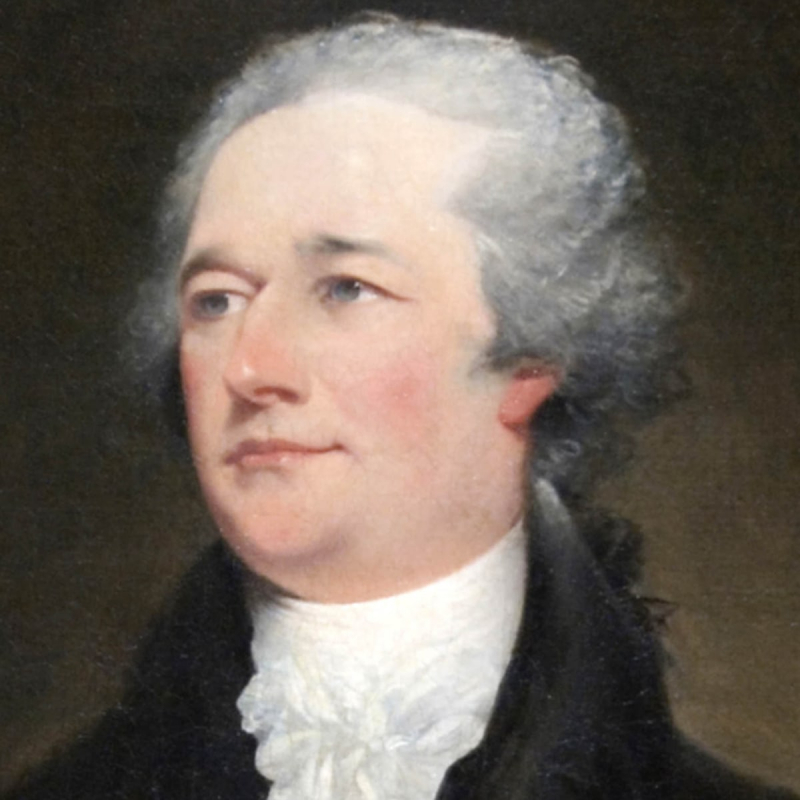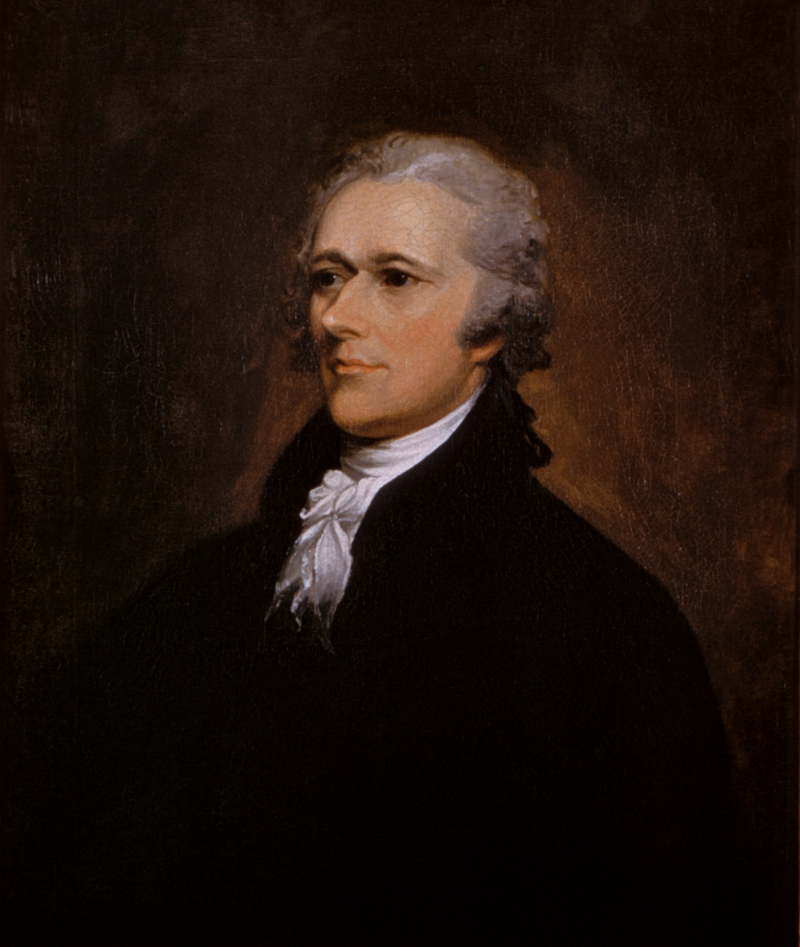Alexander Hamilton
Alexander Hamilton (January 11, 1755 or 1757 - July 12, 1804) was an American revolutionary, statesman, and the country's Founding Father. He was the founder of the Federalist Party, the nation's financial system, the United States Coast Guard, and the New York Post newspaper, as well as an influential interpreter and promoter of the United States Constitution. As the first Secretary of the Treasury, Hamilton was the primary architect of President George Washington's economic policies. He led the federal government's funding of the states' American Revolutionary War debts, as well as the establishment of the country's first two de facto central banks (the Bank of North America and the First Bank of the United States), a tariff system, and the restoration of friendly trade relations with Britain. His vision included a strong central government led by a strong executive branch, a strong commercial economy, manufacturing support, and a strong national defense.
Hamilton was born in Charlestown, Nevis, out of wedlock. He was orphaned as a child and raised by a wealthy merchant. Local patrons sent him to New York to further his education when he was in his teens. His opinion pieces in support of the Continental Congress were published under a pen name while he was a student, and he also addressed crowds on the subject. As the American Revolutionary War began, he joined the militia. He saw action in the New York and New Jersey campaigns as an artillery officer in the new Continental Army. In 1777, he became a senior aide to Commander in Chief General George Washington, but he returned to field command in time for a pivotal action that secured victory at the Siege of Yorktown, effectively bringing the war to an end.
Following the war, he was elected to the Congress of the Confederation as a representative from New York. Before returning to politics, he resigned to practice law and establish the Bank of New York. Hamilton was a leader in the effort to replace the Articles of Confederation's weak confederal government; he led the Annapolis Convention in 1786, which prompted Congress to call a Constitutional Convention in Philadelphia, where he later served as a delegate from New York. He contributed to the ratification of the Constitution by writing 51 of the 85 installments of The Federalist Papers, which are still considered one of the most important references for constitutional interpretation.
As a trusted member of President Washington's first cabinet, Hamilton oversaw the Treasury Department. He is still the youngest cabinet member in the United States since the founding of the Republic. Hamilton successfully argued that the Constitution's implied powers provided the legal authority to fund the national debt, assume state debts, and establish the government-backed Bank of the United States (i.e. the First Bank of the United States). These programs were primarily funded by an import tariff, and later by a contentious whiskey tax. He was opposed to the administration's involvement with the series of insecure French revolutionary governments. The Federalist Party was founded on Hamilton's ideas, which were opposed by the Democratic-Republican Party led by Thomas Jefferson and James Madison.
He returned to the practice of law in New York in 1795. Under President John Adams, he called for mobilization against French First Republic military aggression in 1798-99, and was commissioned Commanding General of the United States Army, which he reconstituted, modernized, and prepared for war. The army saw no combat in the Quasi-War, which was fought entirely at sea, and Hamilton was outraged by Adams' diplomatic approach to the French crisis. In 1800, his opposition to Adams' re-election contributed to the Federalist Party's defeat. Jefferson and Aaron Burr tied for the presidency in the electoral college, and Hamilton helped to defeat Burr, whom he found unprincipled, and to elect Jefferson despite philosophical differences.
Hamilton continued his legal and business activities in New York City, and was active in ending the legality of the international slave trade. In 1804, Vice President Burr ran for governor of New York, and Hamilton campaigned against him as unworthy. Burr took offense and challenged Hamilton to a duel on July 11, 1804, in which Burr shot and mortally wounded Hamilton, who died the next day.
Hamilton is widely regarded as an astute and intellectually brilliant administrator, politician, and financier, albeit one who can be impulsive at times. His ideas are widely regarded as laying the groundwork for American government and finance. Now he is regarded as one of the most important historical figures in America.












